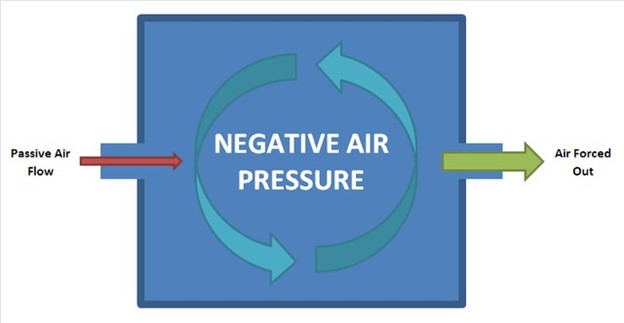A nurse is preparing to admit a 6-year-old with varicella to the pediatric unit.
Which of the following actions should the nurse take?
Administer aspirin to the child for fever
Use droplet precautions when caring for the child.
Assign the child to a negative air pressure room.
Assess the child for Koplik spots
The Correct Answer is C

This is because varicella, or chickenpox, is a highly contagious disease caused by the varicellazoster virus (VZV), which can spread through the air or by direct contact with the fluid from the blisters. A negative air pressure room prevents the air from the room from circulating to other areas of the hospital, reducing the risk of transmission to other patients and staff.
Choice A is wrong because aspirin should not be given to children with chickenpox, as it can cause a serious condition called Reye’s syndrome, which affects the brain and liver. Instead, acetaminophen can be used to reduce fever.
Choice B is wrong because droplet precautions are not enough to prevent the spread of chickenpox. Droplet precautions involve wearing a mask and gloves when in close contact with the patient, but they do not prevent the virus from traveling through the air. Airborne precautions, which include a negative air pressure room and wearing a respirator, are needed for chickenpox.
Choice D is wrong because Koplik spots are not a sign of chickenpox, but of measles, another viral infection that causes a rash. Chickenpox causes an itchy rash with small, fluid-filled blisters that crust over.
Nursing Test Bank
Naxlex Comprehensive Predictor Exams
Related Questions
Correct Answer is D
Explanation
I will need to keep my hand elevated above my heart for several days.” This statement indicates that the client understands the importance of reducing swelling and inflammation in the affected hand after carpal tunnel surgery.
Elevation promotes venous return and prevents fluid accumulation in the tissues.
Choice A is wrong because applying heat for the first 24 hours can increase blood flow and swelling in the hand, which can cause more pain and delay healing. Ice packs are recommended for the first 24 to 48 hours to reduce inflammation.
Choice B is wrong because the client should not avoid using the affected hand for 4 to 6 weeks, as this can lead to stiffness, muscle atrophy, and decreased range of motion. The client should move the fingers periodically and perform gentle exercises as prescribed by the surgeon or physical therapist.
Choice C is wrong because numbness and tingling in the hand are signs of nerve compression, which is the main cause of carpal tunnel syndrome.
The client should expect these symptoms to improve or resolve after surgery, not persist or worsen. If the client experiences numbness and tingling after surgery, they should report it to the surgeon as it may indicate a complication such as nerve injury or hematoma.
Normal ranges for grip strength, pinch strength, and keypinch strength vary depending on age, sex, and hand dominance. However, a general reference for grip strength is 20 to 40 kg for men and 15 to 30 kg for women. For pinch strength, it is 6 to 12 kg for men and 5 to 10 kg for women. For keypinch strength, it is 4 to 8 kg for men and 3 to 7 kg for women.
These values may be lower in older adults or people with chronic conditions.
The client should expect some loss of strength in the affected hand after surgery, but it should gradually improve with rehabilitation.
Correct Answer is A
Explanation
The correct answer is choice a. Maternal hypoglycemia.
Choice A rationale:
Maternal hypoglycemia can lead to fetal bradycardia, causing a sustained low fetal heart rate. Hypoglycemia in the mother can affect the fetus by reducing the availability of glucose, which is essential for fetal metabolism and heart function.
-
Choice B rationale:
Maternal fever is more commonly associated with fetal tachycardia rather than bradycardia. Fever in the mother can lead to an increased fetal heart rate, not a decreased one.
-
Choice C rationale:
Chorioamnionitis is an infection of the fetal membranes and amniotic fluid, which can lead to fetal distress and tachycardia rather than bradycardia.
-
Choice D rationale:
Fetal anemia can also cause bradycardia, but in this scenario, maternal hypoglycemia is a more immediate concern as it directly affects the fetal heart rate by impacting the fetal metabolic processes.
Whether you are a student looking to ace your exams or a practicing nurse seeking to enhance your expertise , our nursing education contents will empower you with the confidence and competence to make a difference in the lives of patients and become a respected leader in the healthcare field.
Visit Naxlex, invest in your future and unlock endless possibilities with our unparalleled nursing education contents today
Report Wrong Answer on the Current Question
Do you disagree with the answer? If yes, what is your expected answer? Explain.
Kindly be descriptive with the issue you are facing.
